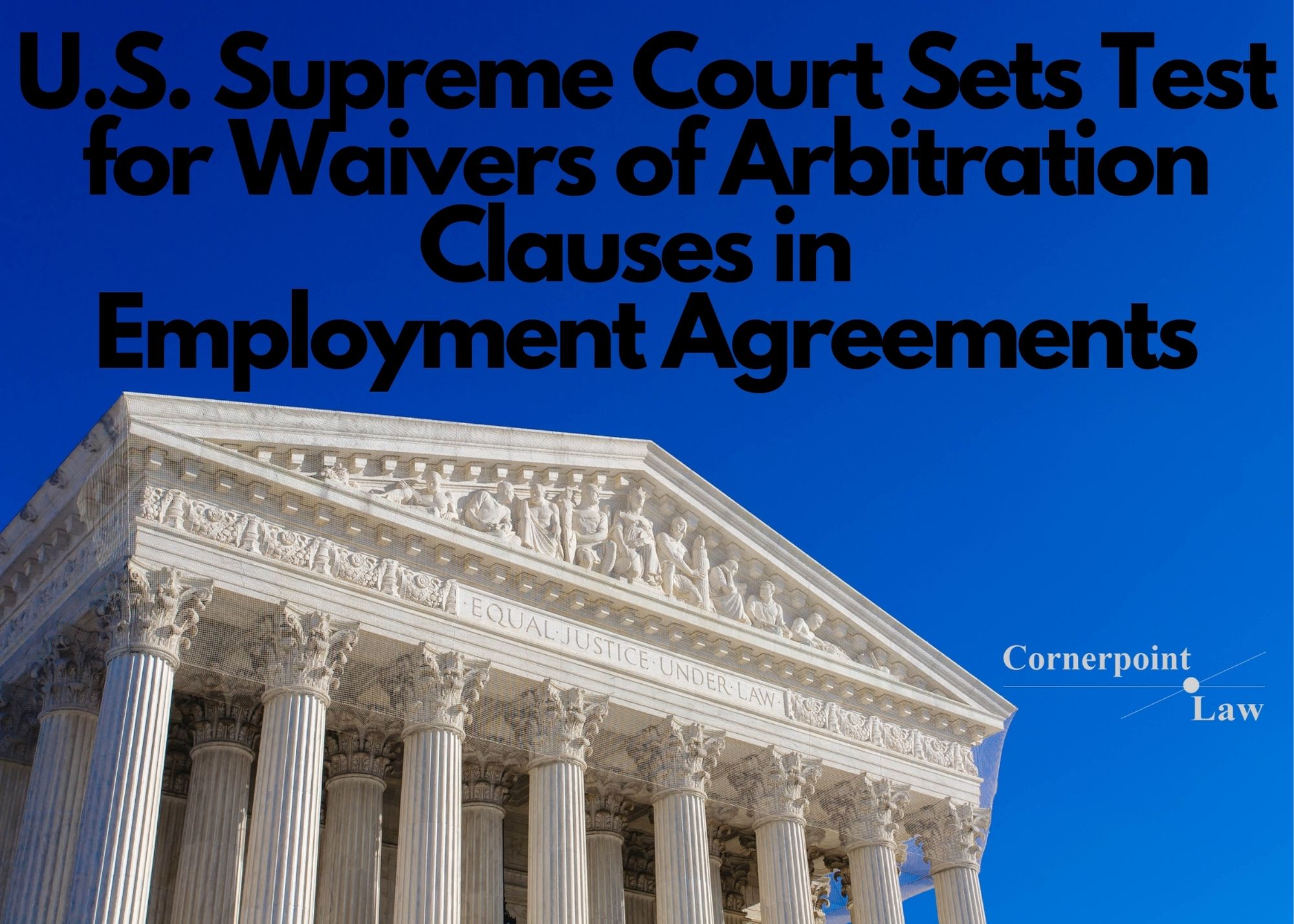Cornerpoint Case Pops: Referring to Arbitration Rules in Contracts
July 24, 2017
Unauthorized use and/or duplication of blogposts without express and written permission is strictly prohibited. Excerpts and links may be used, provided that full and clear credit is given, and with appropriate and specific direction to the original content.
The author of this post can be reached by phone at 206-693-2718 or by email.
Referring to Arbitration Rules in Contracts – Raven Offshore Yacht v. F.T. Holdings
By Stacia Hofmann
Cornerpoint Case Pops are dedicated to summarizing relevant, new cases — and their business and risk management lessons — in bite-size posts.
The Case: Raven Offshore Yacht Shipping, LLP v. F.T. Holdings, LLC, Washington Court of Appeals, Division I, No. 75935-3-1 (Published)
In July 2016, I posted about arbitration clauses in employment contracts — when the parties to the contract agree that a private arbitrator (or panel of arbitrators) instead of a judge and jury will resolve a dispute should one arise. Arbitration clauses are found in all types of contracts, not just employment contracts.
If a dispute arises and the parties disagree whether it falls within the scope of the arbitration clause, how is this issue of “arbitrability” (arbitration jurisdiction) resolved? In Washington, a judge decides arbitrability unless the arbitration clause delegates this responsibility to the arbitrator.
Just like courts have a list of rules, arbitration tribunals often have a list of rules, too. On July 3, 2017, the Court of Appeals held, for the first time, that when an arbitration clause refers to a set of rules that will govern arbitration, and those rules delegate arbitrability to the arbitrator, there is no judicial determination of arbitrability (at least prior to the arbitration).
Risk Management Lesson
Let’s break down this case and the nebulous concept of arbitrability into its practical effect. Arbitration clauses often include a statement that refers to a set of rules, i.e., that the arbitration will be held “in accordance with [fill in the blank] Rules.” Many, if not most, arbitration tribunals delegate arbitrability to the arbitrator, not a judge. Indeed, the various American Arbitration Association rules – probably the most popular arbitration rules – delegate arbitrability to the arbitrator.
A judge’s decision on arbitrability may be cheaper than an arbitrator’s decision (because the parties don’t have to pay for a judge’s time but do have to pay for an arbitrator’s time). A judge’s decision denying arbitration may also be immediately appealed. Not so with an arbitrator’s.
If you use arbitration clauses in your contracts, you should make an informed decision whether to delegate arbitrability to the arbitrator or leave that decision for a judge. So, if a contract says arbitration is subject to a certain set of rules, it is important to know what those rules say about arbitrability. Your decision on what role arbitration should play in dispute resolution, if any, should be based on the likelihood, severity, and type of potential disputes, your budget, and your tolerance to risk. Email or call me to see if Cornerpoint can help.
This blog is for informational purposes only and is not guaranteed to be correct, complete, or current. The statements on this blog are not intended to be legal advice, should not be relied upon as legal advice, and do not create an attorney-client relationship. If you have a legal question, have filed or are considering filing a lawsuit, have been sued, or have been charged with a crime, you should consult an attorney. Furthermore, statements within original blogpost articles constitute Stacia Hofmann’s opinion, and should not be construed as the opinion of any other person. Judges and other attorneys may disagree with her opinion, and laws change frequently. Neither Stacia Hofmann nor Cornerpoint Law is responsible for the content of any comments posted by visitors. Responsibility for the content of comments belongs to the commenter alone.




